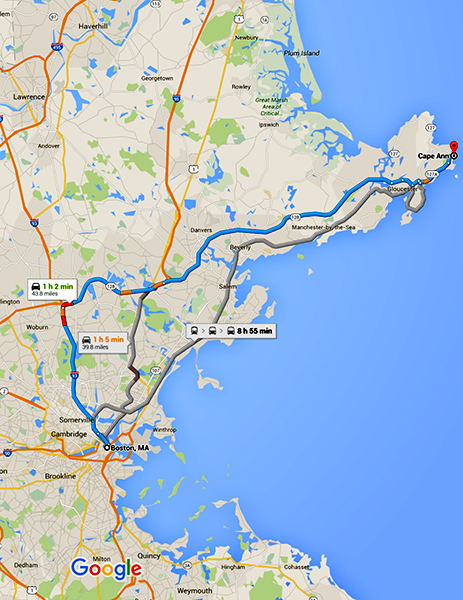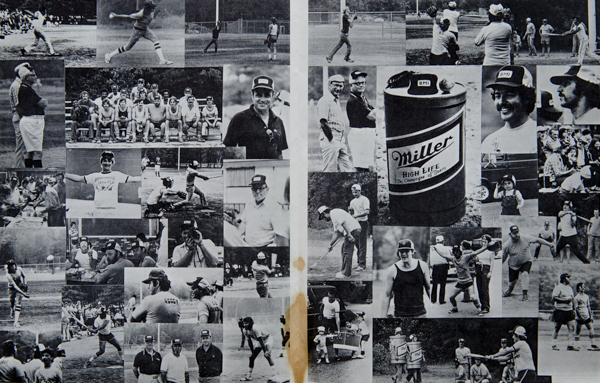Olney Odyssey # 16 Sintered Metals, Softball and Somoza
By Peter Olney
In mid January of 1979 as the Advent battle publicly heated up I took a job at a metal parts manufacturer in Jamaica Plain (JP) called Sintered Metals Inc. I had been laid off by Advent in November of 1978 and had lived on unemployment and the adrenaline rush of the organizing. Now it was clear the plant was closing, and I had located a job at SMI, which was on Washington Street at the old Green Street stop on the then elevated Orange Line of the “T”. I could walk to work because my apartment was on Williams Street near Doyle’s Cafe, the famous JP watering hole featured in the movie, Mystic River.
What do 2 years of college in history and literature have to do with reading mikes, indicators or verniers?”
I was assigned to the third shift, 11 P.M. -7 A.M. I was a press operator running a machine similar to my press at Mass Machine except that this operation was not cutting pieces out of sheet metal. Sintering refers to a work process in metallurgy in which fine powdered metal particles are pressed together in the shape of a part, then sintered or hardened at high temperatures in an industrial oven. (Details here) It is an obvious advance over the laborious process of machining individual parts and has become quite common in the industrial world. The part I remember us making night after long night was the metal casing for a Zippo cigarette lighter (here and here). In 1979 there was talk in the plant that giant pressed metal operations would soon be making even automobile engine blocks, but I don’t think that ever came to pass because of the intense strength requirements. However sintering can be considered a precursor of 3-D printing/fabricating, which appears on its way to replace many traditional fabricating methods and applications.
I was interested in the production process but not stimulated enough to stay awake on the graveyard shift. I tried to combat my drowsiness with smoking and coffee. That didn’t work so I decided that the mental stimulation of crossword puzzles would help. Puzzles run in our family. My mother still does the NY Times puzzle from Monday through Sunday in lightning speed without Google search aids. She has even designed crosswords for magazines and makes up Acrostics for her nieces and nephews as birthday gifts.
I never really acclimated to the night hours. Some workers really like them and certainly getting off work on Friday at 7 AM gets the weekend going early, but my biological clock just never let me sleep in the day (here).
SMI was a family owned company founded in 1943. Myron “Mike” Jaffe was the owner. There weren’t more that 75 employees in production and maintenance in JP. The company had acquired another pressed metals firm in Gloucester called Sinterbond in 1978 and renamed it SMI North. They had the higher tonnage presses and JP handled the lighter work. We in JP were SMI South and the factory was a two-story brick building with 30,000 square feet of production space. In 1977 the workers in the South had voted on union representation with the United Steelworkers (USW) (here and here) and lost by 6 votes.
I had not heard of that union drive before starting at SMI, but I was there to organize. I soon found a soul mate in Normand Brown, a young worker about my age, who was a fluent Spanish speaker from Long Island who had spent time in Cuba. He was a Mechanical Inspector on the second shift, but soon after I got there he moved to third shift. We bonded immediately and started talking about bringing in the USW. The Company handed us a couple of issues. On February 20, 1979 they posted an opening for another Mechanical Inspector. This was a job that they had already posted to the outside public in the pages of the Boston Globe. Finding no takers at their poverty wages, they decided to bring the posting in house. Just the reverse of any decent union job bidding system that provides that incumbents get first crack. Ten of us applied on the third shift. The company offered me the job because of my two years of college. They passed over the applications of more senior and experienced workers in favor of the Liberal Arts college dropout. As I told the personnel manager when I refused the job, “What do 2 years of college in history and literature have to do with reading mikes, indicators or verniers?” The company failed to offer the job to any of the other ten employees. The issue of job postings was a sore point.
On April 26, 1979 the company gave a measly profit sharing check. No raise, just a bonus. Normand calculated that in order for our wages to keep pace with inflation we needed a 10% increase. I was being paid $3.40 per hour, (Minimum wage for all covered, nonexempt workers in 1979 was: $2.90. US Department of Labor) which even at the time was way below the average US manufacturing wage of $5.63. These were the issues that we decided we would campaign on. We started a newsletter called the P/M Worker. The first issue came out in May of 1979 with a blaring headline: “Bonus is Bogus-Cash on the Line in ’79”. Normand did an excellent translation of the 5 legal sized pages into Spanish and we started after shift meetings with workers at Doyle’s Cafe.
We soon realized the obvious that we needed unity with the workers in Gloucester or unionization would be foolhardy because production could be readily shifted in the event of a job action or prolonged strike. There was no SMInc North Facebook page and no cell phones so we needed a way to meet the Gloucester workers up on Cape Ann, 40 miles away. Sports again came to the rescue of the working class organizer! Normand and I had heard that Gloucester had an industrial league softball team. In fact we heard that they were pretty good, and that they had a player named Kevin Goodhue who had had a tryout with the NY Yankees in the spring. Normand was a decent shortstop, and I had played first base until I was 15 and then switched to lacrosse. We decide the best way to fraternize with Gloucester was to challenge them to a softball game.
We assembled a team from SMI South, a multinational group of white, Black and Puerto Rican players to challenge the self described Gloucester Guzzlers. We called ourselves the Supremos or Boston’s Supreme Team, and we practiced in Franklin Park up the street from the plant. The game was played as part of what became a larger company picnic at Ross Park in Peabody on Sunday, July 15th. The owner of the company Mike Jaffe decided that he was going to umpire the game. This proved to be a fateful and interesting decision.
In mid June the company had disciplined me for wrecking parts and a die worth upwards of $1500. I admitted fault but protested that the punishment did not fit the crime as I had investigated how similar offenses had been handled in the past. No one had been disciplined. I issued a denunciation of the discipline as a slam on the union and an unfair labor practice. The owner responded with a letter laying out a whole list of my offenses including that of doing crosswords on the job. He argued that I was not telling the truth and linked it to my leadership role in trying to bring in the union. The implication was that Olney is lying about his work, and will lie to get you to join the union. So by the time we got to softball in July, Jaffe knew who I was and why I was at SMInc.
Back to softball. Gloucester had a far superior team and Kevin Goodhue, the Yankee prospect, hit several towering home runs out of the park, which in softball is not an easy feat. We were down by eleven runs very quickly. We only scored once in the first 4 innings while North piled it on. Then in the top of the 5th we staged a rally. Six runs came in, and I hit a double to drive in three more. I was the potential tying run on second when my buddy Normand singled to right, and I came around third to try and score even though I knew Kevin Goodhue had a rocket of an arm in right. I slid into home plate ahead of the throw, but I had violated a no sliding rule that had been explained before the game to both teams. So I beat the throw but I should have been called out. What would Jaffe, the owner and the home plate umpire rule? Maybe he thought I would run to the National Labor Relations Board if he ruled me out so after some hesitation he signaled safe with his hands held out flat. The Gloucester side was outraged as lowly Boston had tied the score. If we couldn’t agitate them about pay and benefits maybe we could get them to unionize over the owner’s blown call??!! But they scored one more run in their half and ended up winning 12-11 so their honor was preserved.
We did meet and talk union issues with some of the Gloucester guys but they seemed far more satisfied than their Boston brethren. The following month I got a chance to move to Boston City Hospital and become once again an elevator operator. When it came time to get a letter of recommendation from Charlie Gilman the SMInc personnel manager, he wrote a most bizarre letter of reference. In his final paragraph, he said, “I recommend Peter Olney for whatever job he thinks he is qualified for”. Something to be said for union activism and trouble making when it is time to go.
I have since lost touch with Normand Brown although I believe he ended up being a union leader with the International Association of Machinists (IAM). I’ll never forget the hot humid night of Tuesday, July 17th when he introduced me to the Sandinistas and the Nicaraguan revolution that would so much dominate the Reagan years and our activism as anti-imperialists. Norman came running up to me on the night shift to announce jubilantly that, “The Sandinistas have taken over. Anastasio Somoza is gone”. Before that moment I didn’t know who Somoza or the Sandinistas were and where Nicaragua was located. Worcester was West to me.
___________________________◊◊◊___________________________
Next: Boston City Hospital: Going Up!


John,
I think it would have been the United Electrical Workers (UE), the union I organized into at Mass machine. The International Union of Electrical workers was organized explicitly to raid the “Communist” dominated UE during the McCarthy era.
Peter O
A fascinating look into a world most of us have never been exposed to. Although in fact did work one summer for a leather tannery in Woburn and the workers belonged to that then-regarded “commie” union, –was it the International Electrical workers (don’t ask me why that union). Each Friday a stack of the union’s newspaper was there in the locker room and I waited to see just how radical these guys would sound off on reading their paper. They simply grabbed a copy and wrapped their soiled clothing in it to take home to be laundered! And then I would discover that they regarded me, a Harvard student, as the commie!